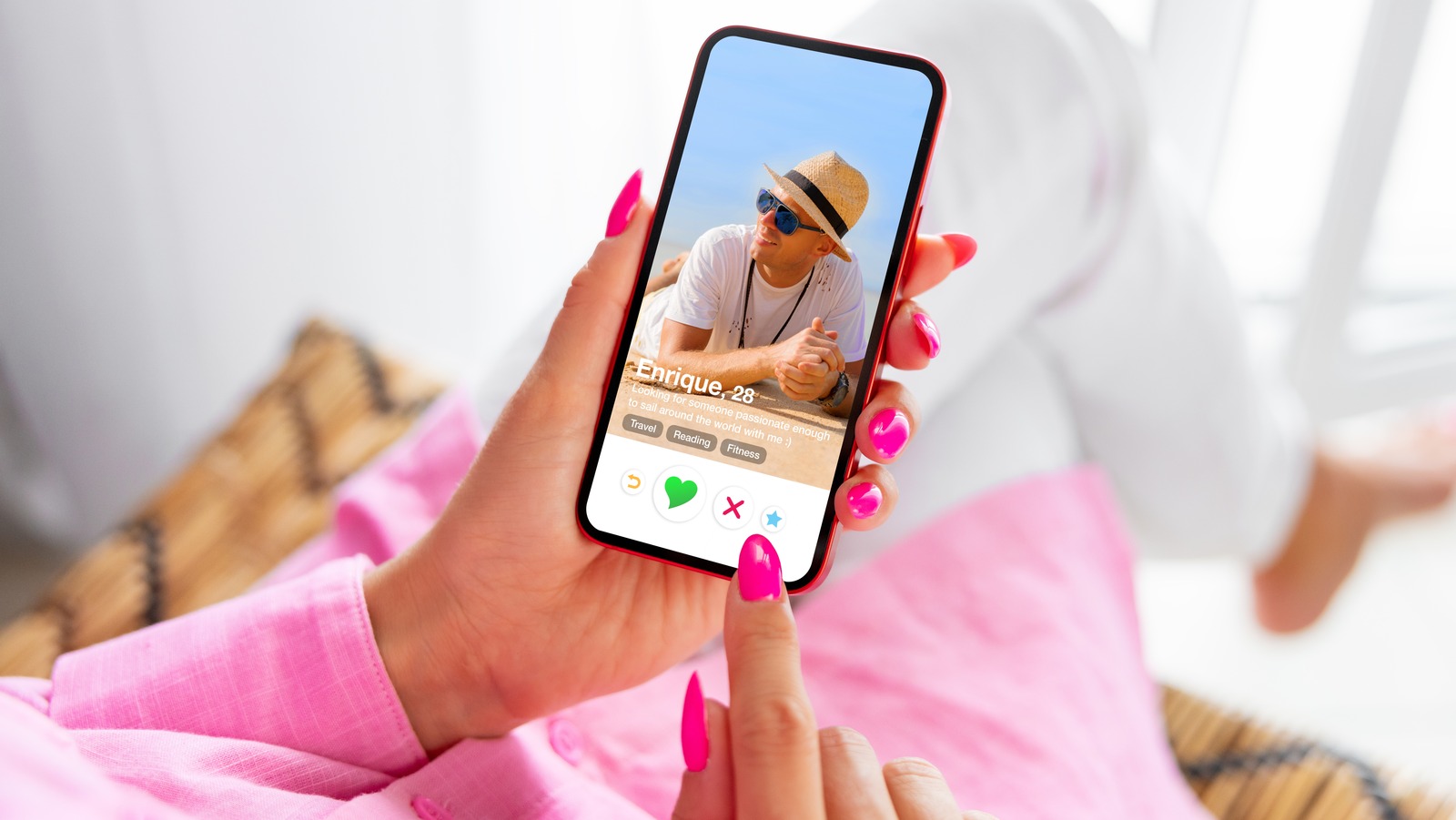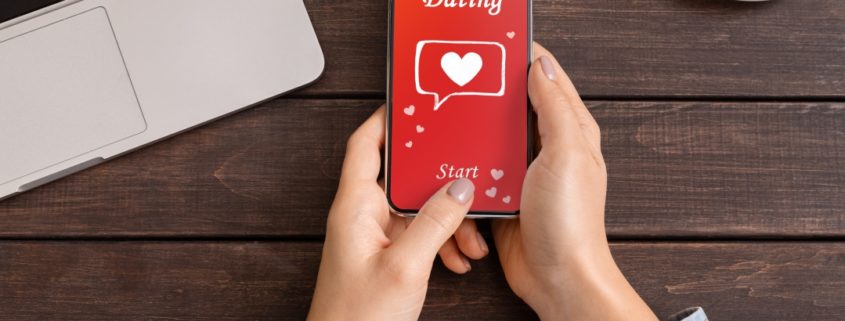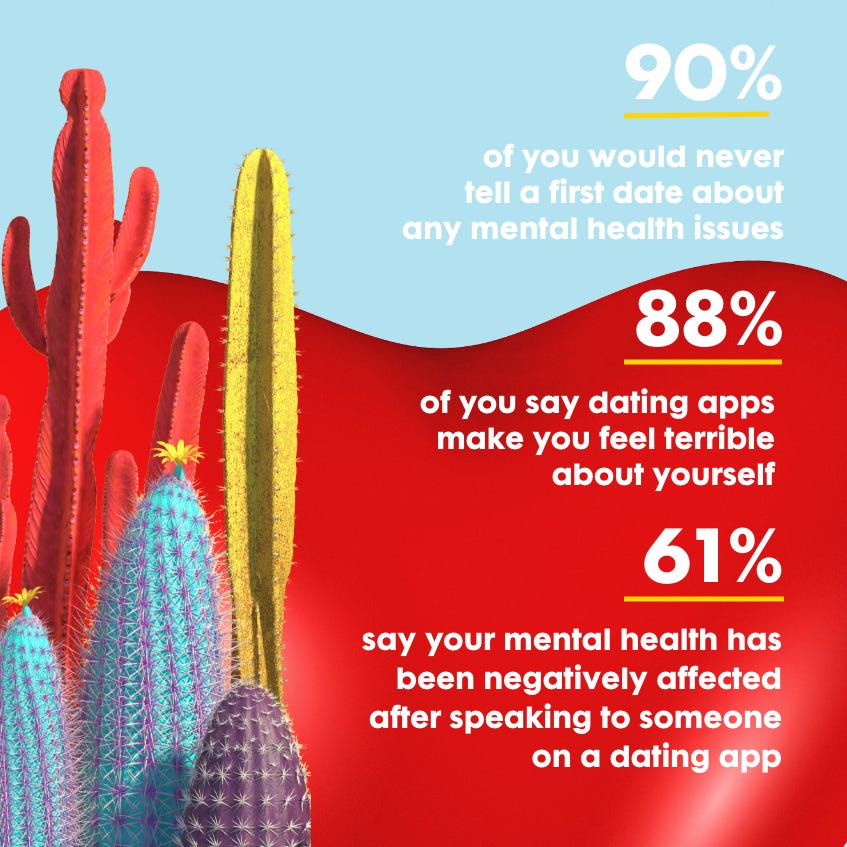
Introduction
Overview of Dating Apps
In recent years, dating apps have skyrocketed in popularity, transforming the way people connect and find love. No longer limited to traditional methods like blind dates or bar encounters, singles can now swipe, match, and chat from the comfort of their homes. This convenience offers unprecedented access to potential partners, often broadening social circles.
Influence on Mental Health
However, the rise of dating apps is not without its complexities. Research indicates they can significantly affect mental health, leading to feelings of anxiety or inadequacy. For instance, users may experience:
- Comparison Anxiety: Constantly evaluating one’s attractiveness against others.
- Isolation: Paradoxically, increased digital connections can lead to feelings of loneliness.
Understanding these influences is key to navigating the modern dating landscape effectively.

Positives of Dating Apps
Increased Social Connections
Despite their challenges, dating apps present a range of positives that can enhance users’ lives. One of the major benefits is the opportunity for increased social connections. Users can meet individuals they might not encounter in their daily routines, expanding their social circles in exciting ways.
- Diverse Interactions: Users can connect with people from various backgrounds and cultures.
- Flexibility: Whether looking for friends or romance, dating apps cater to both.
Access to Matchmaking Tools
Another significant advantage is access to advanced matchmaking tools. Dating apps utilize algorithms to suggest compatible matches based on user preferences, interests, and behaviors. This allows for tailored experiences that shine light on potential partners, making the process more efficient and enjoyable.
- Filtering Options: Users can set criteria such as age, location, and interests to narrow down matches.
- Enhanced Communication: Many apps offer features like icebreakers and conversation starters to ease initial interactions.
These technologically driven resources not only speed up the search for companionship but also foster deeper connections.

Negatives of Dating Apps
Impact on Self-Esteem
While dating apps can be fun and connecting, they may also adversely affect users’ self-esteem. The visual nature of these platforms often leads to comparisons, where individuals might feel inadequate when faced with seemingly perfect profiles.
- Comparison Trap: Scrolling through attractive profiles can diminish self-worth.
- Validation Seeking: Users may start to rely on matches for self-affirmation, leading to unhealthy patterns.
Potential for Addiction
Another concerning aspect is the potential for addiction. The instant gratification provided by swipes and matches can create a cycle of compulsive behavior, making it challenging to disengage.
- Interference with Daily Life: Users might find themselves spending excessive time on these platforms, neglecting real-life relationships and commitments.
- Loss of Genuine Connections: The ease of obtaining new matches can lead to superficial interactions, resulting in a lack of meaningful relationships.
Recognizing these drawbacks can help users engage with dating apps more mindfully.

Mental Health Considerations
Understanding Emotional Responses
As users engage with dating apps, it’s essential to recognize and understand their emotional responses. The highs and lows of matching can be exhilarating yet disheartening, depending on outcomes.
- Joy of Connection: Getting a match can elicit feelings of excitement and validation.
- Heartbreak and Rejection: Conversely, unmatched profiles or ghosting can lead to feelings of sadness or frustration.
Awareness of these emotions can empower users to process their experiences more effectively.
Seeking Support
When navigating the ups and downs of digital dating, seeking support can make a significant difference. Conversations with friends or loved ones can alleviate feelings of isolation and help users gain perspective.
- Peer Support: Sharing experiences with friends can create a sense of community.
- Professional Help: If feelings of anxiety or depression become overwhelming, talking to a therapist can provide essential coping strategies.
Ultimately, fostering open dialogues and seeking support can enhance mental well-being while using dating apps.

Strategies for Healthy App Use
Setting Boundaries
To maintain a healthy relationship with dating apps, setting boundaries is crucial. Users should establish limits on how much time to spend on these platforms.
- Time Frames: Consider implementing a specific time limit each day for app usage.
- Notification Management: Turn off non-essential notifications to reduce distractions and anxiety.
These boundaries help users stay mindful of their time and emotional investment.
Practicing Self-Care
Practicing self-care is equally important in this context. Engaging in activities that nurture mental and emotional well-being can create a positive balance.
- Mindfulness Activities: Try meditation or yoga to reduce stress and enhance self-awareness.
- Hobbies and Interests: Focus on nurturing other interests outside of dating apps, such as reading or exercise.
By prioritizing self-care, users can ensure that their app interactions contribute to overall well-being rather than detract from it.

Professional Guidance
Therapy Options
For those struggling with the emotional challenges of dating apps, seeking professional guidance can be invaluable. Therapy offers a safe space to explore feelings, address anxiety, and promote self-esteem. Various options are available:
- Cognitive Behavioral Therapy (CBT): Focuses on changing negative thought patterns.
- Group Therapy: Provides shared experiences with others facing similar challenges.
These therapeutic avenues can help users navigate the complexities of online dating more effectively.
Consultation with Mental Health Professionals
In addition to therapy, consulting with mental health professionals can provide tailored support. These experts can offer strategies to manage emotional responses and improve overall mental well-being.
- Individual Assessments: A professional can evaluate specific concerns related to app use.
- Workshops and Resources: Many mental health professionals provide workshops focusing on improving dating and relationship skills.
Engaging with professionals not only equips users with coping mechanisms but also fosters a healthier approach to dating in today’s digital age.

Conclusion
Key Takeaways
In summary, while dating apps provide unique opportunities for connection, they also bring challenges that can impact mental health. It’s important to recognize both the potential benefits and drawbacks as users navigate their dating journeys. Remember the key takeaways:
- Establish healthy boundaries.
- Engage in self-care practices.
- Seek professional support when necessary.
Importance of Mindful Dating App Use
Mindful use of dating apps can significantly enhance the overall experience. By approaching these platforms with intention and awareness, users can foster meaningful connections while preserving their mental well-being. Ultimately, a thoughtful approach can lead to not just better matches, but also a healthier mindset in the pursuit of love.
